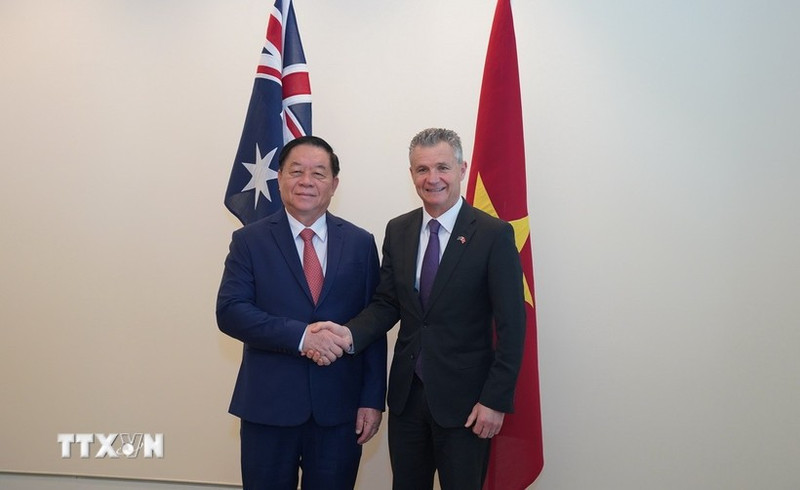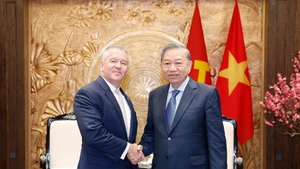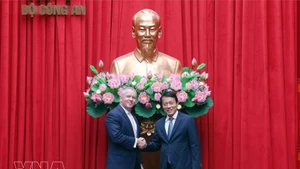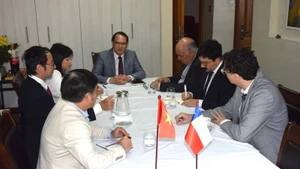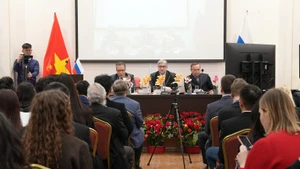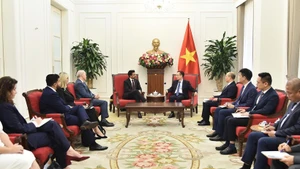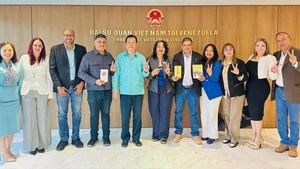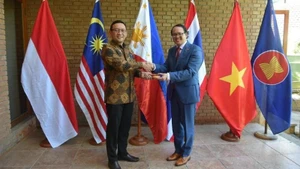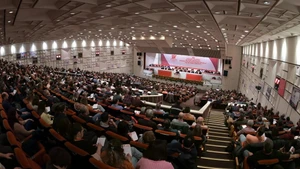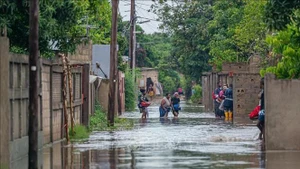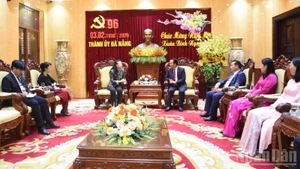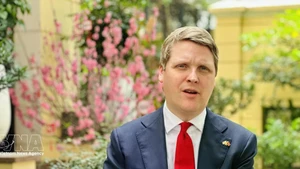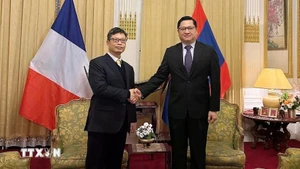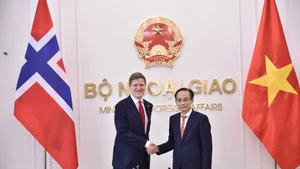On September 18, Nghia, who is also Chairman of the CPV Central Committee’s Commission for Information, Education, and Mass Mobilisation, met with Australian Assistant Minister for Foreign Affairs and Trade and Assistant Minister for Immigration Matthew Thistlethwaite; President of the Communist Party of Australia (CPA) Vinnie Molina; and President of the Australia – Viet Nam Friendship Society Kim Samson. He also visited and talked with staff of the Vietnamese Embassy in Canberra.
Welcoming the delegation, Thistlethwaite said the visit came at a time when bilateral ties are flourishing, with economic and trade relations showing positive growth despite global challenges. He expressed Australia’s desire to work more closely with Viet Nam in promoting free trade, safeguarding a rules-based international order, and reinforcing the role of the World Trade Organisation (WTO).
The Australian official also commended the expansion of defence cooperation, particularly under the 2024 peacekeeping partnership agreement, and highlighted Viet Nam’s active contributions to UN peacekeeping operations. He noted that people-to-people exchanges are growing strongly, with an increasing number of Australians travelling to Viet Nam and more Vietnamese students studying in Australia.
Thistlethwaite added that Australia recently approved visas for the first group of 44 out of 1,000 Vietnamese agricultural workers under a bilateral labour agreement.
For his part, Nghia congratulated Australia on its recent achievements, welcomed the positive results of Governor-General Sam Mostyn’s recent state visit to Viet Nam, and reaffirmed that the CPV and the Vietnamese Government attach great importance to Australia’s role. He called for stronger cooperation across all fields and urged both sides to effectively implement high-level agreements and existing mechanisms to deliver practical benefits to their people.
Meeting with Kim Samson, Nghia highly appreciated the contributions of the Australia – Viet Nam Friendship Society in fostering the bilateral ties, particularly in the fields of health and science. He encouraged the society to continue serving as a bridge to further promote friendship and mutual understanding between the two nations.
In his talks with CPA President Vinnie Molina, Nghia proposed further strengthening the traditional friendship and cooperation between the two Parties through information sharing, theoretical exchanges, and enhanced collaboration in communications, publishing, and public mobilisation.
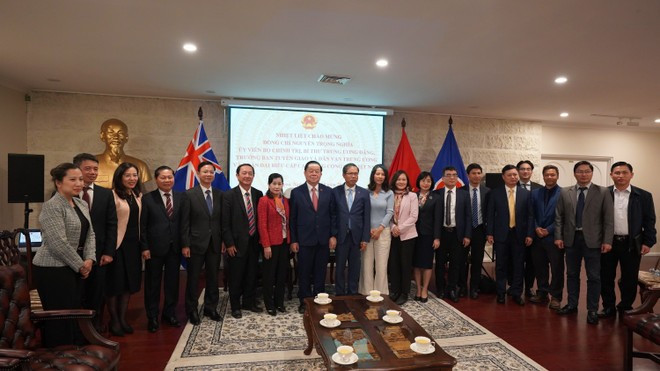
At his working session with the Vietnamese Embassy in Canberra, Nghia praised the ambassador and staff for their dedication to assigned political tasks, urging them to maintain solidarity, initiative, and a strong sense of responsibility in advancing the Viet Nam – Australia Comprehensive Strategic Partnership to generate greater practical outcomes in line with the country’s development requirements.
In the meetings, Nghia also briefed Australian partners on Viet Nam’s socio-economic achievements, foreign relations, and key policy orientations set by the CPV to accelerate institutional reforms, improve the legal system, foster growth, and lead Viet Nam into a new stage of development.
